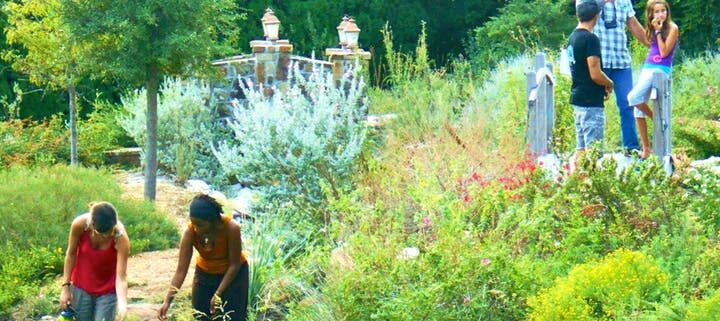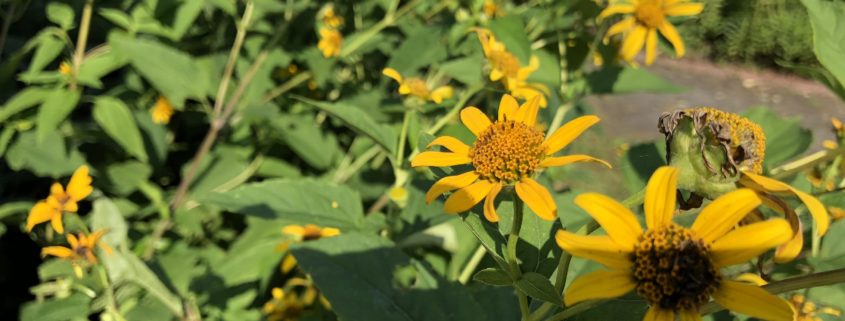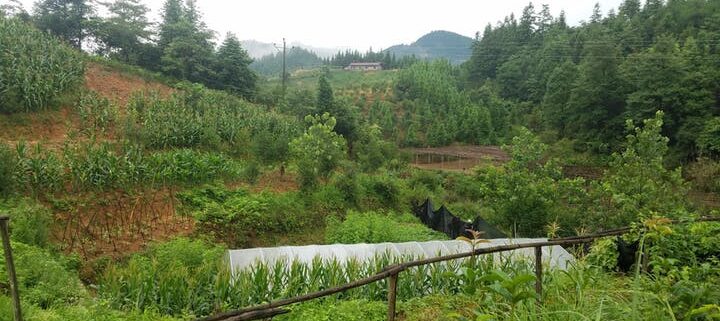Permaculture Design Certification Course
72-Hour Permaculture Design Certification Course with Wayne Weiseman
August 31-September 8, 2019 at
Heartwood Farm in Louisa, VA.
About this event
A Permaculture Design Certificate (PDC) course offers a comprehensive introduction to Permaculture principles, applications & design practices and meets the international standard as the 72+ hour foundational course for Permaculture practitioners and teachers.
You will have many opportunities to put theory into practice by doing hands-on, creative activities at Heartwood Farm, where Permaculture principles are actively practiced and promoted. We will do an in-depth site analysis, and students will create designs of different areas on the farm. Special guests will share their expertise as well.
While learning about our habitat and our own relationship with the environment, we will look at how humans have been relating to Earth throughout history and into today’s modern urban times. The three main historical viewpoints we will study are:
Hunter/Gatherer
Training in hunter-gatherer living and nature skills sharpens our ability to see life as it is. We develop hand and eye coordination, and become one with an environment where we must observe and create what we need in an immediate and balanced way.
Agricultural Settlement
Exposure to various methods of sustainable agriculture, i.e. Permaculture, Biodynamic Agriculture, Bio-intensive gardening, the eco-agriculture movement, organic systems, the natural way of farming of Masanobu Fukuoka and indigenous systems of agriculture. You also learn about renewable energy systems (wind, water, solar), ecological building practices (straw bale, cob, cordwood, etc.) and everything from tool making to animal husbandry.
Urban/Suburban
Studying the urban and suburban landscape and learning ways to live sustainably in the midst of concrete and close-quarters. Discover how permaculture design can help those living in urban and suburban areas meet their needs for nutrition, energy and community while maintaining meaningful work and upholding sustainable policies in towns and cities.
Where is this?
This 8-day intensive course will be held at Heartwood Farm in Louisa, VA. Class will take place from 8:00 am to about 6:00 pm each day, with breaks for lunch, and two additional evening activities with served dinner. A light breakfast fare and lunch will be provided each day.
Heartwood is a sustainable diversified farm in Central Virginia using permaculture principles to raise pastured pork, ducks, chickens, rabbits, eggs, vegetables and herbs. It’s roughly 15 minutes to Gordonsville and 30 minutes to downtown Charlottesville, where restaurants, grocery stores, hotels, airbnbs, etc. are abundant. Camping will be available on the farm, however students must bring all of their own camping equipment.
Why take this class?
Because this course is a game changer. It brings into focus practical principles and ethics that many of us have forgotten or dismissed. It is like picking up a master key that unlocks many doors leading to abundance and health. Students have repeatedly stated they have found that by regenerating the earth and improving their relationship with it they have regenerated themselves in the process. You want this master key!
Topics covered
- Permaculture ethics & principles
- Concepts, themes, method of design
- Climate & microclimates
- Plants, gardening & farming systems
- Primitive skills & foraging
- Landform & water movement
- Alternative energy & natural building
- Seed saving, plant propagation, grafting
- Soil fertility & soil management
- Native medicinal plants identification, uses & preparation
- …and many more!
Early bird tuition (until 5/31/19): $900. Regular tuition: $1,100. Standard processing fees apply. Includes breakfast and lunch each day, plus two dinners. Camping available on the farm, other sleeping accommodations (hotels, airbnbs, etc.) are the responsibility of the student. Students will receive the Permaculture Design Certificate on the final day of the course.
*Limited 1-Day Workshops Available for two of the course days. Workshop attendees will not receive a PDC certificate*
(9/4/19): Soil Fertility & Mushroom Cultivation – Full day workshop (8am-5pm). We’ll cover basic soil biology, organic methods to build soil fertility and how to build an at-home composting system. Also learn how to grow your own edible/medicinal mushrooms at home with fresh log inoculation techniques! Includes a chainsaw use & safety demonstration.Fee: $120.
(9/7/19): Fermentation; Herbal Medicine; Live Animal Process, Cooking Demonstration & Dinner – Half Day Workshop (1pm-8pm). Hands-on introduction to lacto-fermentation and folk herbal medicine traditions. Livestock process and cooking demonstration will be done by farm owner, Zac Culbertson. Learn the basics of how to process poultry, raised on Heartwood Farm. Includes a delicious cooking demonstration and a wonderful group dinner! Fee: $75.
About the Instructor
Wayne Weiseman is a permaculture teacher, designer, consultant and author. He was certified to teach permaculture by Bill Mollison, the founder of permaculture, in 1999. Wayne has taught hundreds of Permaculture Design Courses around the world. He has served as a consultant and lecturer to educators, school administrators, business leaders, and others internationally. For 15 years Wayne managed a land-based, self-reliant community project combining organic crop/food production, ecologically-built shelter, renewable energy and appropriate technologies.
Wayne is a co-author of an authoritative book on integrated forest gardening and plant guilds that was published in August, 2014.
For more information on the instructor, Wayne Weiseman, go to: http://www.permacultureproject.com/
Questions? Please email [email protected]




